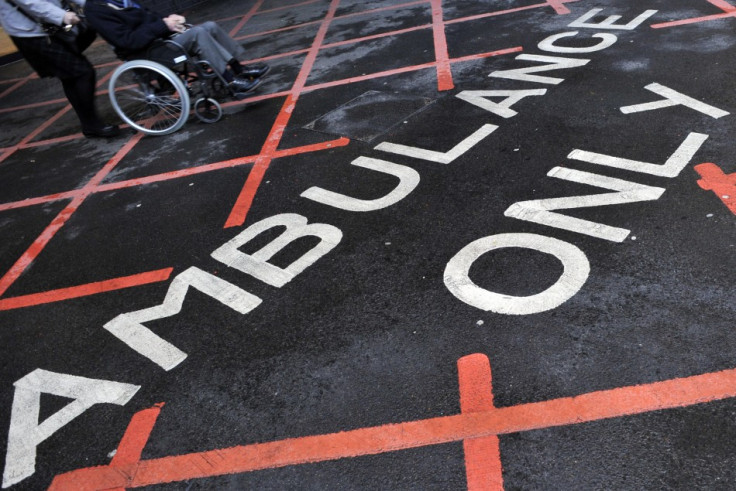NHS has 'Robust Plans' To Cope with First Nursing Strike in 30 Years
England's chief nursing officer says NHS will cope during Monday walkout

England's chief nursing officer has said the NHS has "very robust contingency plans" in place for when healthcare workers go on strike for the first time in more than 30 years this week.
Jane Cummings said the NHS will cope when nurses, midwives and ambulance staff walk out on Monday – but urged NHS workers who were considering going on strike to put patient safety first and refuse to take part.
She told the BBC: "I would say to staff, I know that you are professional, I know that you will think very carefully about any action you take tomorrow. But our patient safety must be our priority and I know that's what staff will be thinking of."
Nurses, midwives and ambulance staff are among healthcare workers from six unions in England and Northern Ireland who are set to walk out from 7am BST until 11am on Monday, in a dispute with the UK government over pay.
1% pay rise 'too much'
Members want a 1% pay rise for all staff, but the NHS has said this will cost too much.
The Department of Health warned hospital services could be disrupted on Monday and the rest of the week, when members of the unions who voted for a strike – including the Royal College of Midwives, Unison, Unite and the GMB – plan to work-to-rule between Tuesday and Friday.
Urgent and emergency care – including maternity wards – will not be affected. Doctors and dentists are not involved, and these services are expected to run as normal. But the strike is intended to disrupt more routine care, which could result in patient transport services not running and antenatal and postnatal clinics being cancelled.
Ms Cummings warned hospitals could be busier on Monday than usual. She added: "I would say to members of the public, bear with us. We have got very robust plans in place."
Jon Skewes, director of employment relations at the Royal College of Midwives, said a 1% pay increase for all staff was "not unrealistic".
"Just recently a report said that in London alone the health service was wasting about £384m a year on agency staff. There are ways of getting around that kind of waste – and one of the ways of doing that is to treat the existing staff in the NHS fairly."
Unison general-secretary Dave Prentis said: "We know health workers don't take strike action lightly or often. The last action over pay was 32 years ago. But we also know a demoralised and de-motivated workforce isn't good for patients."
© Copyright IBTimes 2025. All rights reserved.





















